Wednesday, July 29 2015

For the past six years, when I’ve traveled to New England for the summer, I’ve spent the lion’s share of that time on a tiny island in a lake in New Hampshire. It sounds grand that my family owns an island with a camp on it, but think very small with mostly unusable waterfront and a camp that’s little more than a wooden tent, no heat, no running water, no hot showers, an outhouse for facilities and no connection to the outside world in the form of phone, internet or television. The only amenity we do have is electricity, so we do have a stove to cook on, but we also have to heat water on it to do the dishes. Most of us now have cell phones, but this lake is surrounded by hills and God only knows where the closest cell tower is. We get very weak and spotty reception. So, for the most part, we don’t have any connection with the outside world.

Every summer before this, I’ve taken the time and spent the money to visit the good people at Verizon and to activate a tiny device that creates a WiFi zone. Even that gadget has its limits and operates with the speed and reliability of the old dial-up connections, but I still got to check all my regular sites and stay in touch with people I was used to seeing online every day. But this year, considering I was only going to be here for two weeks, I didn’t bring the MiFi, and here I am, alone on the island, unable to check my email, visit facebook or access the internet. It’s only day one and already I am in withdrawal. The day after I first arrived my cell phone managed to bring in a signal strong enough to post a notice on FB letting folk know where I was and why they might see much of me for the next couple weeks. The day I wrote this, I didn’t even have that. Occasionally I drive down to visit my dad or do laundry and I get to log onto my sister's WiFi which is how this got posted.
 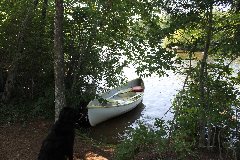 
I have a book to finish, two blog posts that I’ll have to go off island to post and a newsletter to put together for the end of the month, so I keep telling myself it’s a good thing to be unplugged. I’ll get more done. I won’t have the time-suck that FB and Twitter are to distract me. But I keep picking up my phone to see if I can check in anyway. The answer hasn’t changed in three hours, but I keep trying.
It might not feel quite so isolating if we shared this island with other people – then I’d have neighbors to at least say hello to now and then. But it’s just us – me and Duffy, and he doesn’t say much. Gives me a whole new appreciation for the character Tom Hanks played in Castaway. At least I have a roof over my head and my dog for company. But I still feel antsy to know what’s going on in the world and with my friends and acquaintances. I want to check my email to make sure I’m not missing something important. Perhaps I’ve grown too reliant on having an electronic connection to my world?
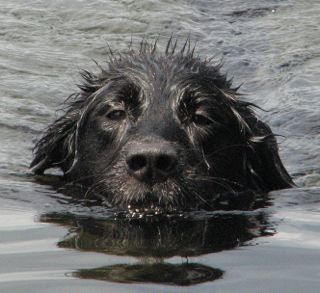 
Please feel free to comment on this post. It might be a few days before I can approve the reply and it appears on the blog, but I would love to know how you feel about going off the grid. Is it a blessing or not?
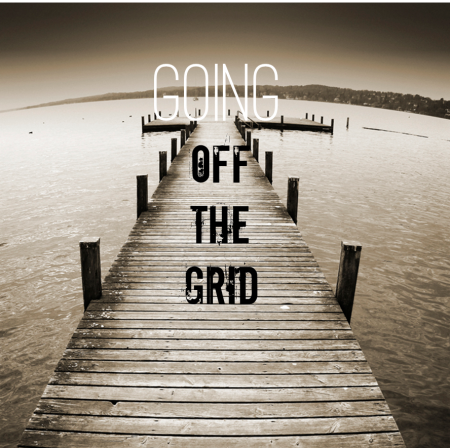
Saturday, July 25 2015
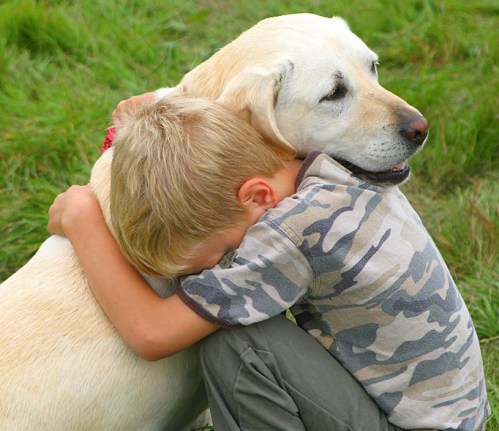 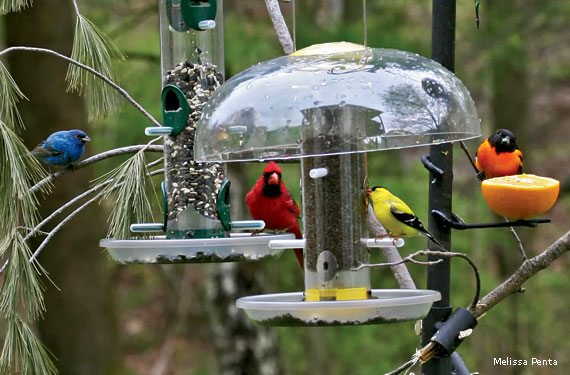
Animals add a richness to life, whether they are pets who share our homes, or wildlife we put feeders out for and enjoy seeing in the wild. There are animals who have been trained to become an indispensible aide for those living with disabilities. Animals have also become enormously important in the fields of law enforcement and the military. It’s rare that a human will go through life without having been touched in some way by an animal, so why shouldn’t we expect to find them within the pages of a book.
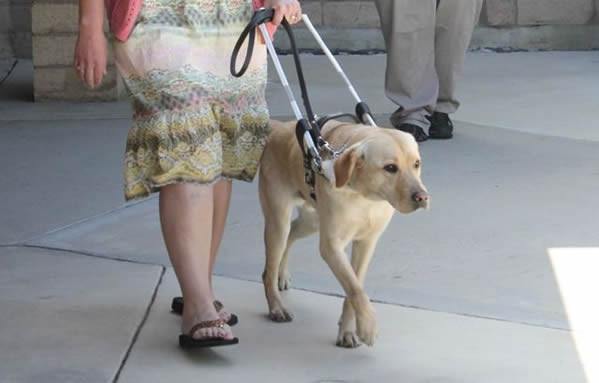  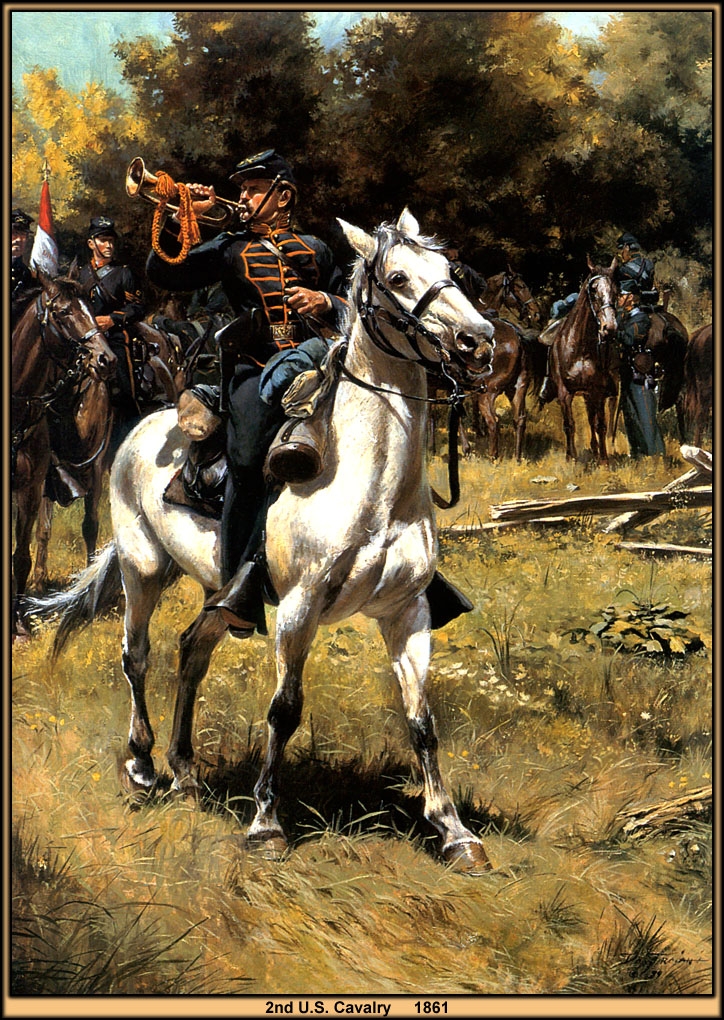
Anyone who reads historicals or westerns has probably met some unforgettable horses, like Black Beauty or the Lone Ranger’s Silver. We’ve held our breaths while the hero or heroine outran a death-dealing animal in the wild as in the movie JAWS! Rin Tin Tin and Lassie are just two of the many well-known canines from both books and television. Sometimes these fictitious pets bring us to tears, as in Old Yeller or make us laugh like Beethoven and Marley, sometimes they are just cute, cuddly and fun to have around.
Just as having a convincing villain in our stories makes them more complex and interesting, so can a well-written animal character. I’ve had an animal in all of my books in print. Most of them have simply been pets, as the elderly golden retriever in Whatever It Takes, or the adopted cat Bruce in Trusting Will. In the first book in my Camerons of Tide’s Way series, Falling for Zoe, my heroine had a cat, two fish, a parrot and three dogs. Her menagerie was a collection of pets, her own and those left behind by siblings who grew up and went off to college leaving Zoe in charge. It was one of the things her ex-boyfriend couldn’t abide, and the hero of the story admired.
    
In the second book in the Tide’s Way series, Loving Meg, I featured service dogs. My hero trains German Shepherds for police work as a career and as the book begins he has become interested in training dogs for service work with returning soldiers suffering from PTSD. The conflict, at least part of it, is that his wife Meg is a Marine lieutenant, just returned from a tour in Iraq where she witnessed the death of a military dog trained to find IEDs. Torn by guilt, thinking she might have been partly to blame, the dogs in her husband’s kennels bring on nightmares and flashbacks.

But there’s another dog in this story. Kip is a police canine suffering the after effects of violence that took the life of his handler. It’s far easier for Ben to understand the loss that Kip is suffering - he’s spent his whole life with dogs and he knows what makes them tick. He desperately wishes he understood Meg’s nightmares better, too. If only she could open up and tell him why the dogs in his kennel make her cringe when they bark or why Kip shadowing her everywhere about the house makes her uneasy.
Loving Meg is a love story between a man who fell in love with his soul mate when she was still a teenager and the woman who has loved him ever since they first met. They have a good marriage and two young sons, but Kip and the deceased Scout make the story interesting. They add richness to the relationship and urgency to the conflict.
 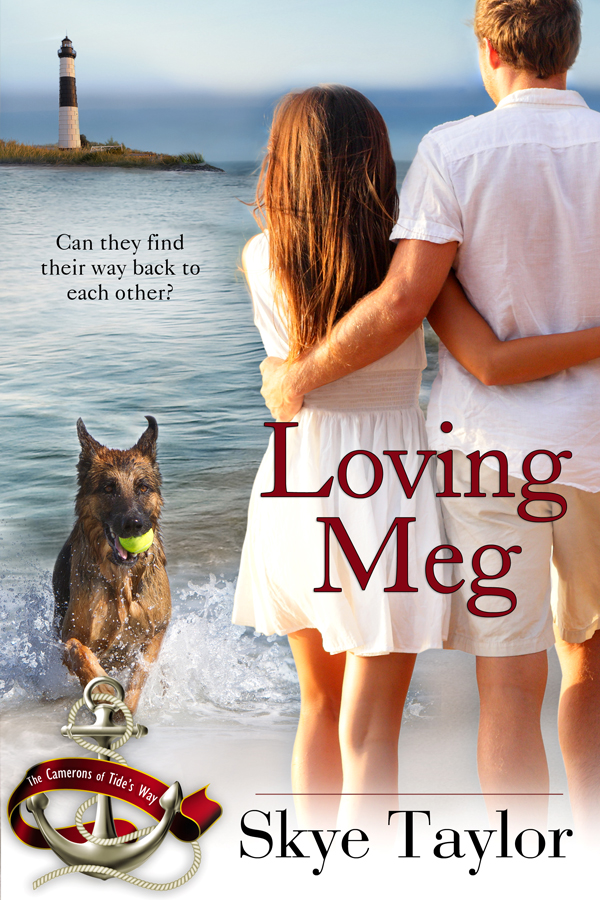
I love reading books that have animals in them as well, from the kitten that tangles the knitting yarn, to the horse that carries his master into battle, to the dog that chases a tennis ball until his young boy’s arm can’t throw it even one more time. I was touched by the book, Until Tuesday, which is a non-fiction account of how a dedicated service dog brought a broken and hurting soldier back from the brink to a life full of purpose and joy. The story of Capt. Monteban and Tuesday inspired me to write Loving Meg and to dedicate half of my proceeds from the sale of the book to the non-profit group, K9s for Warriors in Ponte Verdra, Florida.
If you'd like to know more about K9s for Warriors click here> 
To see how other authors have used animals in their books, check out the links to other blogs in this series:
 
Beverley Bateman http://beverleybateman.blogspot.ca/
Victoria Chatham http://victoriachatham.webs.com/
Connie Vines http://connievines.blogspot.com/
Margaret Fieland http://www.margaretfieland.com/blog1/
Rachael Kosinski http://rachaelkosinski.weebly.com/
Kay Sisk http://kaysisk.blogspot.com
Judith Copek http://lynx-sis.blogspot.com/
Marci Baun http://www.marcibaun.com/
Diane Bator http://dbator.blogspot.ca/
Anne Stenhouse http://annestenhousenovelist.wordpress.com/
Rhobin Courtright http://www.rhobinleecourtright.com/
Tuesday, July 21 2015

Early in the last century, our country began to take a leading role on the world stage. Our democracy, built on a firm foundation of freedom to pursue life without interference from autocratic governments, flourished with innovation and confidence. Our business climate led to industrial strength, wealth and success for anyone who wanted to work hard to make their dreams come true. Wave after wave of immigrants arrived on our shores, determined to find their way in this new and vibrant country. They learned the language and labored to give their children better lives than their own. Whatever their ethnicity, they became Americans and in the process made this country stronger and even more diverse.
But somewhere along the way we lost that vision of who Americans are. We stopped being responsible for ourselves, our decisions, and our lives. We lost a sense of respect for our fellow citizens, from our leaders to our neighbors. We tend to ask “what’s in it for me?” to any request for our time, talent or treasure. Our children are growing up in a world where they expect the government to take care of them, to provide food and shelter when they hit difficult times, jobs and job security, and subsidies for college. Illegal immigrants expect amnesty when they break our laws and even many of the legal immigrants expect to cash in on the benefits of living here without working for them.

When I was growing up, if I got in trouble at school, I just prayed my father wouldn’t find out because I knew there would be additional discipline when I got home. In today’s world the miscreant’s father is more likely to head right down to the school to give the teacher a hard time for being too hard on his poor misunderstood child. We might as well remove the word accident from the dictionary because lawyers would have us believe there is always someone who can be blamed and sued for obscene amounts of money. What happened to taking responsibility for the choices we make that result in unpleasant consequences? Or just accepting the fact that sometimes bad things happen and it’s no one’s fault? When did we stop expecting people to work for the things they wanted or to pay for the bad choices they made?
 
We’ve let people with no faith dictate the way we live and removed any sense of morality from public life, and yet we act shocked when misbehavior escalates to mayhem. We overlook the dishonesty of our elected officials and continue to elect men and women who have lied to us and made selfish choices that are not in the best interest of the people they have been elected to serve, but more often taken only with the goal of getting elected again. We should be holding our leaders to a higher standard, rather than lowering our expectations.
We’ve failed to teach our children self-discipline, self-respect and patience. We hand out trophies for participation rather than award hard work and excellence. Any expert in child development will tell you that children gain confidence from achievement based on their own efforts, not from empty praise and easy rewards. If a child grows to adulthood without learning how to set goals, and how to make sacrifices and work hard to reach them, how to fail and get back up again, then they end up lacking confidence. The Can-Do mindset that Americans have always been known for in the past fades quickly when we sit back and wait for someone else to make our lives what we expect them to be. And that lack of self-respect easily becomes a lack of respect for everyone else.

It’s time to stop the landslide into mediocrity. It’s time to take a hard look at the wishy-washy, political correctness of our current mind-set. It’s time to start being honest with ourselves and with each other and to demand that people start taking responsibility. An appalling 36.4 percent of eligible voters actually voted in 2014 – the lowest figure since WWII. Apathy is rampant, and it’s the road to ruin. If we don’t want to work for it, we won’t keep it. If we are not willing to fight for our country we will lose it to others who are more motivated and willing to do whatever it takes to defeat us. If America is to remain strong and vibrant for our grandchildren and their children, it’s time to take a serious look at the policies that have eroded our economy and our leadership. It’s time to stop playing partisan politics and make the hard choices that will be required to turn tide.
 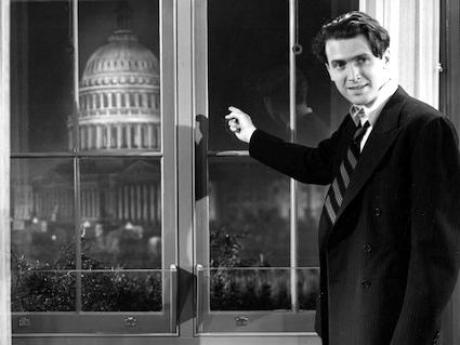
We have heard a lot about heroism in the news lately, but heroism apparently stops at the front door of Congress and the White House. Unfortunately these views are for the most part, politically incorrect. Which leads me to wonder if the death of America will be at the hand of political correctness and a lack of courage. What a sad epitaph.
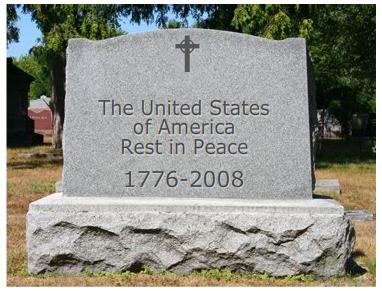
Tuesday, July 14 2015
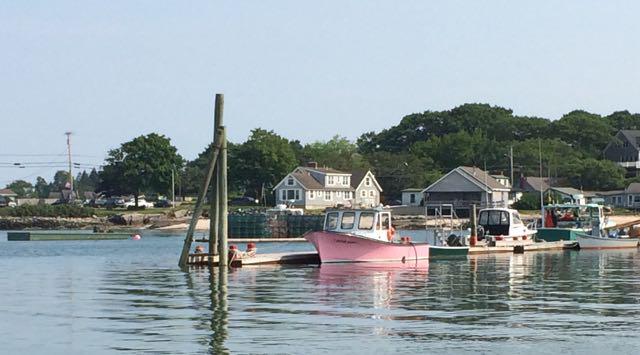 
For twenty years, I lived on the coast of Maine. It was a beautiful home, one I designed and even helped to build. Then I joined the Peace Corps and was sent to a tiny island country in the South Pacific. I left Maine one snowy February day and less than a week later, stepped out of an Air New Zealand jet and climbed down the stairs to meet the sweltering heat of a late summer evening in Tonga. I was on the adventure of a lifetime and I was excited to be there, but even so, the heat was daunting. But I quickly acclimated and began to enjoy the tropical setting, the warm South Pacific waters, and the soft trade winds that made the island a paradise. Then, two and a half years later, I came home and went back to work. I was fortunate that my first few months were still summer in Maine, but before long the nights turned chilly and soon after the glorious explosion of fall foliage winter set in. Winter seemed to last forever. As beautiful as my home was, I kept pining for the warmth of Tonga. Spring was late that year and the following summer shorter than usual. The following winter, in a desperate attempt to leave the cold and snow behind for at least a few days, I took a vacation to St Augustine, Florida. A friend had been telling me for years, I’d love the historic little city, and she was right. I fell in love with the place. It took me two more years to plan and execute my early retirement and permanent move to St Augustine.
I love my little bungalow on a barrier island with the ocean almost at my feet and I enjoy walking on that beach year round and feeling the sun on my face and being warm. Moving was a happy decision, and I’ve not regretted it for a moment. But the lure of Maine is still in my blood. This summer, I decided to find a cottage to rent foa couple weeks to enjoy it at its most glorious (unless you count the fleeting fall foliage days.) My borrowed cottage had a deck overlooking Merriconeag Sound on the northern fringes of Casco Bay where I could eat my breakfast and watch the fishermen hauling their lobster pots, then later in the day see the graceful schooners sailing by and ending with a glorious sunset.
 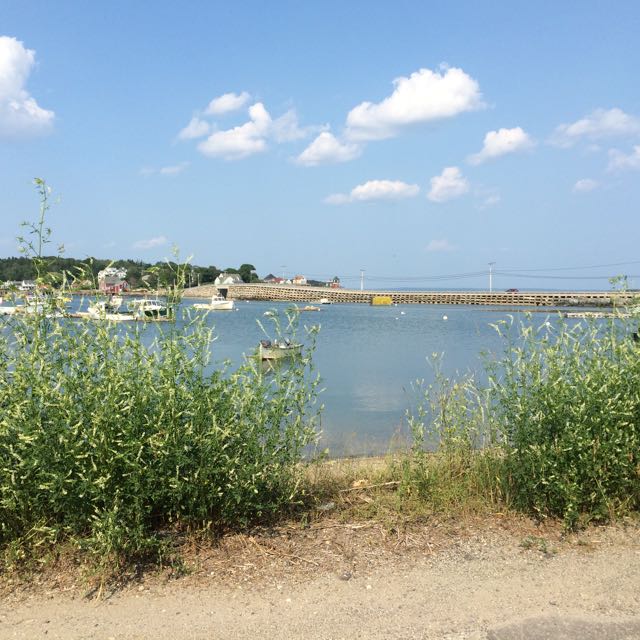 
I feasted on lobster so fresh it had probably still been on the boat just hours before it ended up on my plate. I reconnected with a friend I hadn’t seen in over twenty years and had a chance to visit with both of my former bosses and catch up on their news. As standoffish as most New Englanders are, the folk in the little neighborhood I was staying in were super friendly and I feel like I’ve made at least half a dozen new friends. Duff and I walked down to the little harbor by a world famous cribstone bridge every day so he could go swimming, and we checked out a few other little beaches tucked into the rocky shoreline. I had grand plans to spend the quiet retreat writing – specifically finishing my latest book, but as it turned out, I did a lot of reading instead, catching up on some of my vast to-be-read pile.
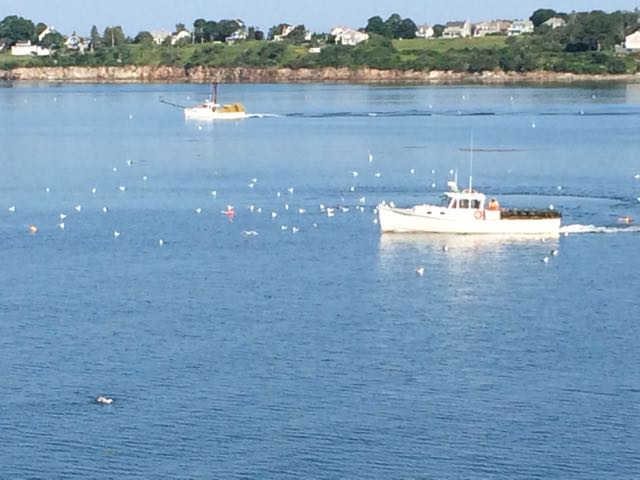  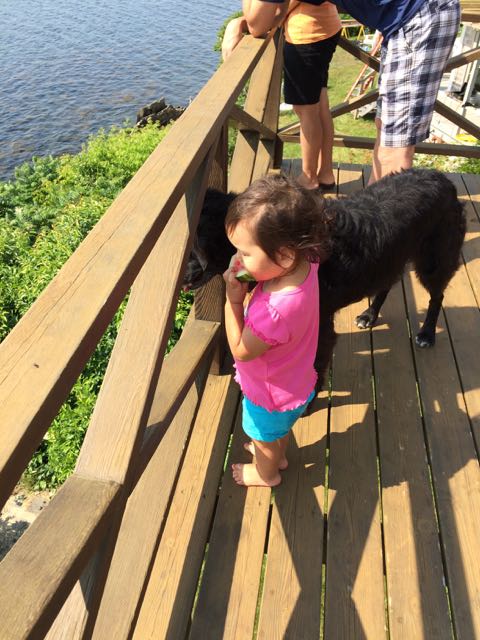
The fireworks were absolutely spectacular. On the 4th I sat on my deck and watched fireworks for more than two straight hours. We could see the display as far away as Portland and half a dozen other’s closer to us. And on the 5th we walked down to that little harbor, sat on a beached dock ramp and watched the most fantastic display I’ve ever seen anywhere. All-in-all, it was a magical two weeks that ended far too quickly – my summers in Maine were always too brief so I guess that was to be expected. BUT – I’ve already reserved this cottage for next year so I’ll be coming back for another taste of Maine.
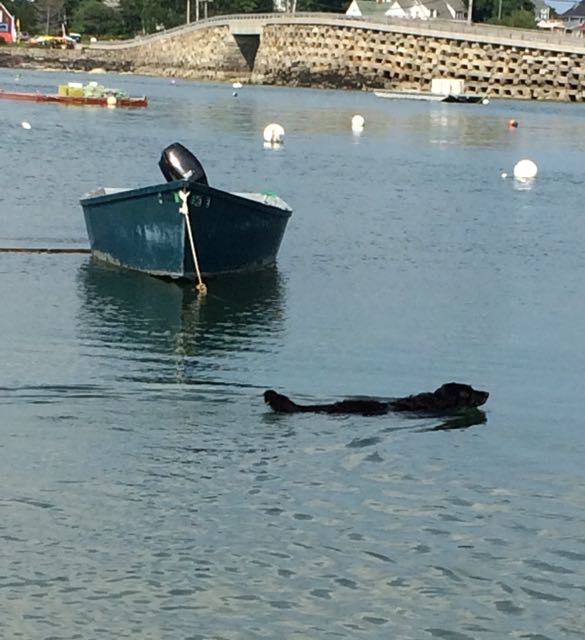  
Tuesday, July 07 2015
 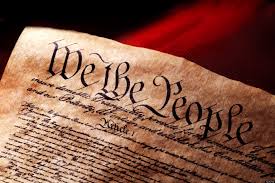
On Memorial Day we remembered all those who have sacrificed their lives in the course of American history to maintain the ideal of liberty and opportunity, but on this holiday it’s time to reflect on how America came to be in the first place.
We slap burgers on the grill, drag chairs to Main Street to watch the local parade, head to the beach for a day of sun and swimming and await the dark that brings colorful displays of fireworks. Merchants feature big holiday sales to lure customers and the police and emergency medical personnel gear up for a possibly busy weekend. Even in London America’s Independence Day is celebrated with dozens of events, American style food and entertainment. (The Brits are either really good losers or they are celebrating being free of a difficult, strong-willed child.
 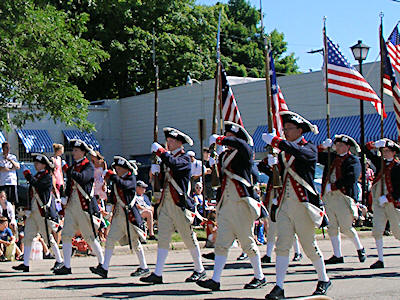 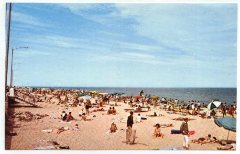
But how many of us stop to consider the magnitude of what we are celebrating? Or the sacrifices that it took to gain that ideal of liberty? Long before July 4th 1776 there were British soldiers quartered in commandeered homes in Boston, sent there to keep order and enforce the taxes being levied on the colonies. Shipping was harassed at sea, colonial ships were boarded and men taken by force to become crew on British ships. The men and women who settled in America had come mostly to establish a home where they could worship as they wished without interference and oppression, but the idea of freedom had become more than just freedom of religion. It had become a way of life. A way of life worth defending whatever the cost.
After long months of debate and several petitions sent to the British Parliament and King George, which were mostly ignored, fifty-six men signed the declaration that declared, in part: “We hold these truths to be self-evident, that all men are created equal, that they are endowed by their Creator with certain unalienable Rights, that among these are Life, Liberty and the pursuit of Happiness.--That to secure these rights, Governments are instituted among Men, deriving their just powers from the consent of the governed, --That whenever any Form of Government becomes destructive of these ends, it is the Right of the People to alter or to abolish it, and to institute new Government…”
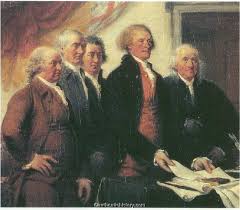
These men were not young hot-heads eager to start a war, they were soft-spoken men, educated and fair in their dealings. Twenty-four were lawyers or judges, eleven merchants, nine were farmers and owners of large plantations. In signing this declaration they knew they were putting everything they had on the line – their homes, their livelihoods and even their lives. But they signed it because they believed the cause was worth that level of risk. Looking back today, it’s easy to diminish the sacrifices these men made because our history books and folklore are full of the successes of men like Benjamin Franklin, John Adams and Thomas Jefferson. Yet, among the fifty-six signers, five were captured and tortured during the war that followed, twelve had their homes ransacked and burned, two lost their own sons, and nine of them fought and died in the war that followed. Carter Braxton, a wealthy Virginia merchant had his ships sunk or captured at sea, he sold his plantation to pay his debts, then died a pauper. Thomas Keen served in the Continental Congress without pay while his family went into hiding and his home was destroyed. Several of the signers lost their wives and families as well as their property.
The cost of standing up to declare the birth of a new nation, grown and able to govern itself was very high, indeed. So, the next time you see those stars and stripes flapping bravely and boldly in the breeze, take a moment and be thankful for the liberty you enjoy today. As you listen to the reverberating booms of fireworks and sigh in awe as color fills the skies, remember for a moment, the men who made it possible. Freedom is not free and never was.

|